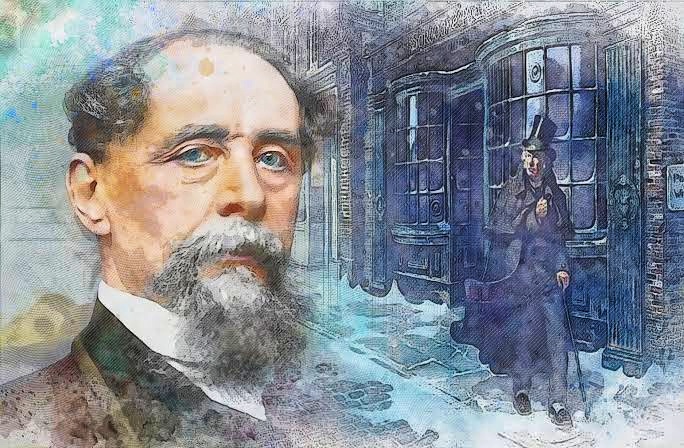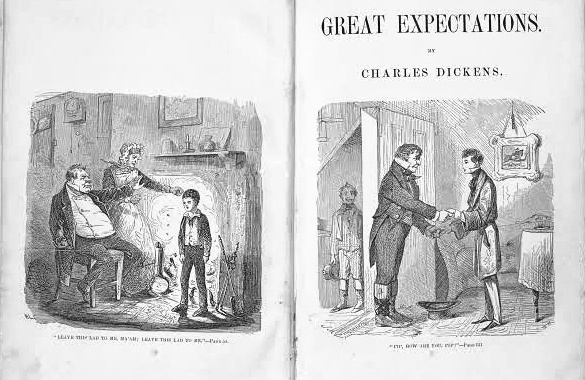One of the major themes of the novel “Great Expectations” is “Class Consciousness”. Explain with examples.

Class Consciousness in Great Expectations
Class consciousness is a central theme in Charles Dickens‘ novel “Great Expectations”. Throughout the novel, Dickens examines the complex social hierarchy of Victorian England and the ways in which it shapes the lives of the characters, particularly the protagonist, Pip. The novel portrays the rigid class system that existed in Victorian England, where social status was largely determined by birth and wealth. Dickens explores how this system can both elevate and restrict individuals, and how it can lead to a sense of insecurity and inadequacy for those who do not fit into the upper echelons of society.
Pip’s journey from a poor, orphaned boy to a wealthy gentleman provides a framework for exploring the theme of class consciousness. At the beginning of the novel, Pip is acutely aware of his social inferiority. He is the son of a blacksmith and lives in a small, humble cottage with his sister and her husband. When he is taken to Miss Havisham’s house, he is struck by the opulence and grandeur of her home and the elaborate lifestyle she leads. He becomes acutely aware of his own poverty and lack of social status, and this realization fills him with shame and embarrassment.
As Pip becomes more involved with Miss Havisham and her ward, Estella, he begins to crave a different life for himself. He longs for wealth and status, and dreams of becoming a gentleman. This desire is fueled by his infatuation with Estella, who embodies the ideal of upper-class beauty and elegance. Pip believes that if he can become a gentleman, he will be able to win Estella’s heart and achieve the social status he desires.
Pip’s aspirations to climb the social ladder are also evident in his relationships with other characters. He is initially ashamed of his friendship with Joe, his sister’s husband, because of Joe’s working-class background. He is embarrassed by Joe’s lack of education and refinement, and worries that associating with him will hold him back in life. This attitude is reflected in his treatment of Joe, whom he belittles and patronizes.
As Pip’s fortunes improve, he becomes increasingly preoccupied with appearances and social status. He is consumed by the trappings of wealth and status, and becomes obsessed with dressing and behaving like a gentleman. He spends money lavishly, buys expensive gifts for those around him, and rents a lavish apartment in London. However, his newfound wealth does not bring him the happiness and fulfillment he expects. He finds himself trapped by the expectations of others, and unable to escape the sense of inadequacy that has haunted him since childhood.
One of the most striking examples of class consciousness in the novel is the character of Miss Havisham. Miss Havisham is a wealthy spinster who lives in a decaying mansion, frozen in time by her bitterness and desire for revenge. She is obsessed with social status, and is determined to use Estella to exact revenge on men. Miss Havisham is a victim of the social hierarchy, trapped by the expectations of her class and gender. Her obsession with appearances and status has led her to a life of bitterness and isolation.
Another example of class consciousness is the character of Estella. Estella is the object of Pip’s infatuation, and embodies the ideal of upper-class beauty and elegance. She is aloof and disdainful of Pip, and treats him with contempt. Estella has been raised by Miss Havisham to be a weapon against men, and she uses her beauty and charm to manipulate Pip and others. Estella is the product of a social system that values appearances and status above all else, and her treatment of Pip reflects this.
Through the characters of Pip, Miss Havisham, and Estella, Dickens explores the destructive nature of class consciousness. He shows how the rigid social hierarchy of Victorian England can limit individuals’ potential and trap them in unhappy lives. Pip’s obsession with wealth and status blinds him to the value of human relationships, and leads him to betray those who have been closest to him. Miss Havisham’s bitterness and isolation are a direct result of her inability to break free from the expectations of her class and gender. And Estella’s manipulative behavior is a defense mechanism against a society that has taught her to use her beauty and charm to get what she wants.
In conclusion, class consciousness is a major theme in Charles Dickens’ novel “Great Expectations”. Through the character of Pip and his relationships with others, including Miss Havisham and Estella, Dickens explores the destructive nature of the rigid social hierarchy of Victorian England. He shows how the pursuit of wealth and status can lead individuals to betray their closest relationships, and how the expectations of class and gender can limit individuals’ potential and lead to unhappy lives. “Great Expectations” serves as a reminder of the dangers of allowing class consciousness to define one’s life, and the importance of valuing human relationships over material possessions and social status.
*****
Read More: Great Expectations by Charles Dickens

